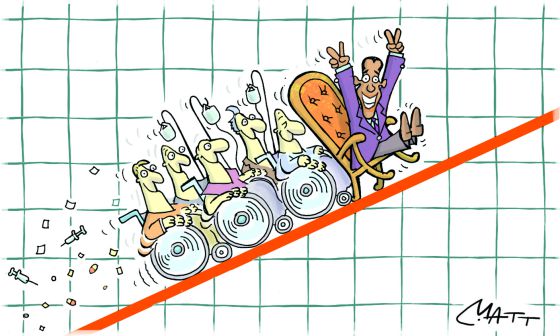
The U.S. Supreme Court’s sentence that has given the green light to Obama’s health care reform is more than a political victory for the president, for the Democratic Party and for the 30 million citizens that did not have health insurance. There is practically no significant decision taken in the U.S. highest court that does not involve a fight over the vertical distribution of power between the federal states and the federal government — led by the president — and the horizontal distribution of power among the three branches of government; judicial, legislative and executive.
Among the claimants, there are 26 states of the Union, governed by Republicans, who have rebelled against what they consider to be a restriction of their legislative power and an unfair imposition that limits individual rights because it obliges citizens to subscribe to health insurance. Behind this opposition against a health care reform, branded as socialist and European by those who denigrate it, there is a political philosophy that vindicates a minimal federal state, which leaves social welfare policies in the hands of the federal states.
But the judges that have passed sentence have also discussed the limits of the judicial branch before the decisions of the executive and the laws passed by Congress. The chief justice, the conservative judge John Roberts (appointed by George W. Bush), was the one who tilted the court to a majority in a decision that has marked a very important moment in his judicial career and left a formidable jurisprudential mark with regard to the limits of action of the government. Essentially, Roberts has tried to prove the political nature of the health care reform, approved by legislative bodies through popular vote and the mere legal control of the judges, leaving no possibility of any amendments as hoped by the appellant conservatives.
Although it is not easy to anticipate the impact that this sentence will have on the current campaign — if it will paralyze the Republican opposition or, on the contrary, if it will activate the Democratic field — it is evident that it is overcoming its last and greatest obstacle to the application of a reform that is crucial for Obama’s presidential campaign program.
The key to this decision is the power that judges of the Supreme Court hold for life, which allows them to disregard any other consideration that is not strictly legal and whatever their conscience dictates, as Roberts unexpectedly did. The decision strengthens the institutional framework, especially the U.S. Supreme Court, after a period marked by the politicization of sentencing, political polarization between Democrats and Republicans, and their slide into ultraconservative positions.

Leave a Reply
You must be logged in to post a comment.